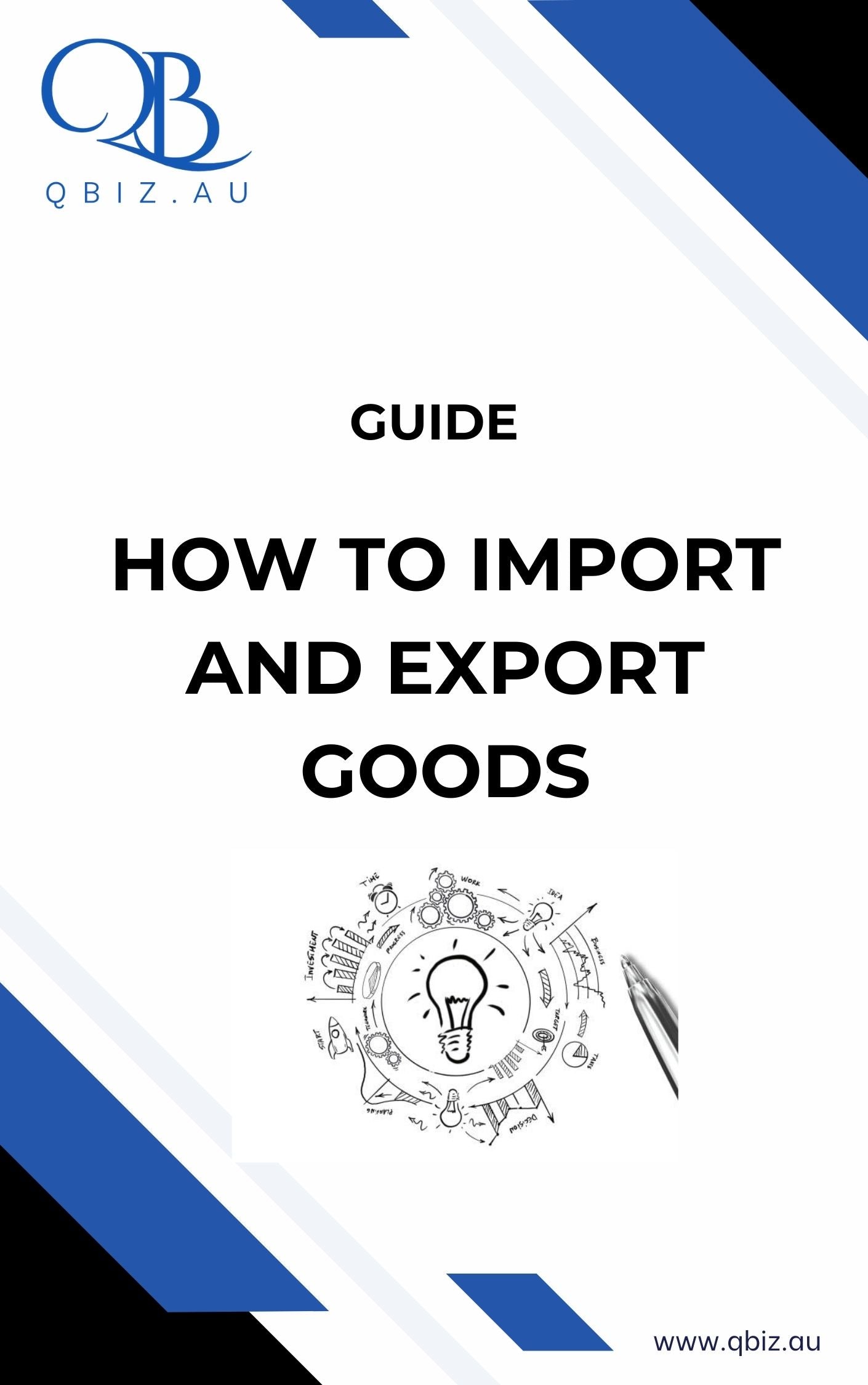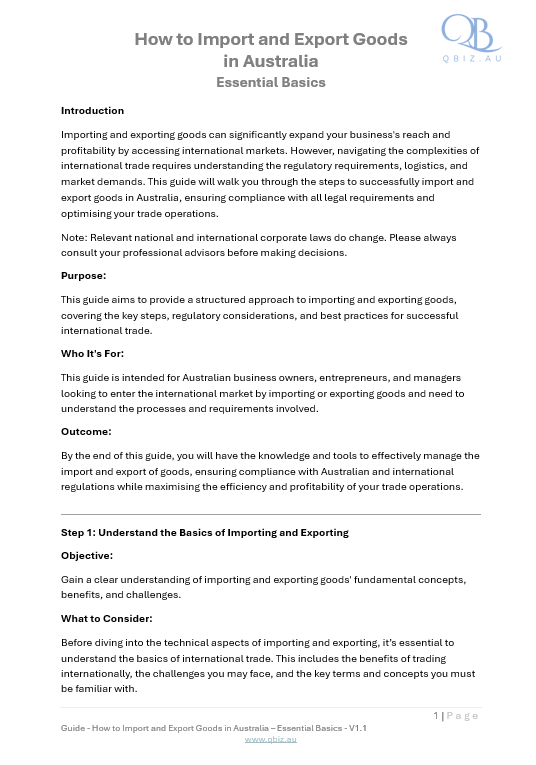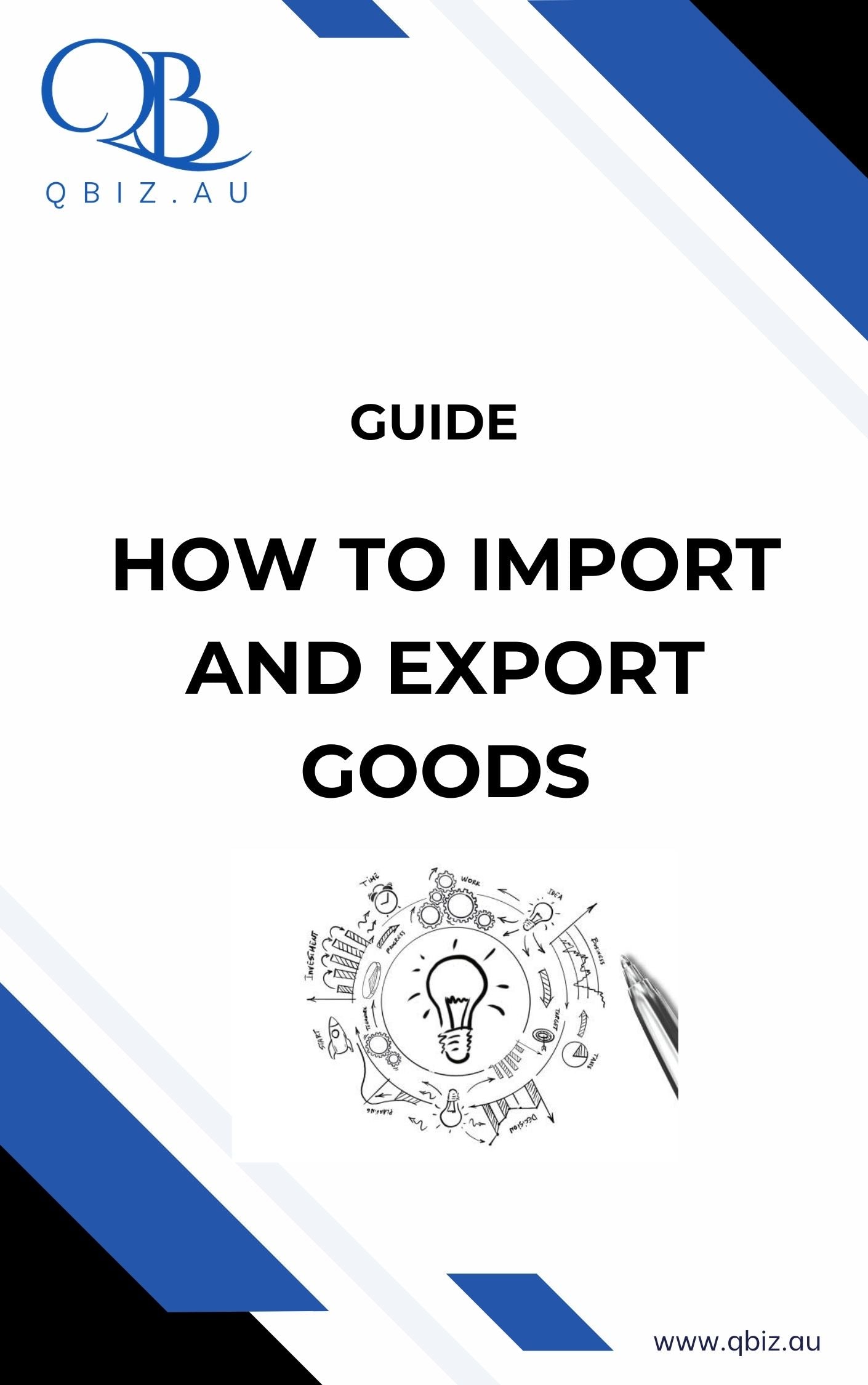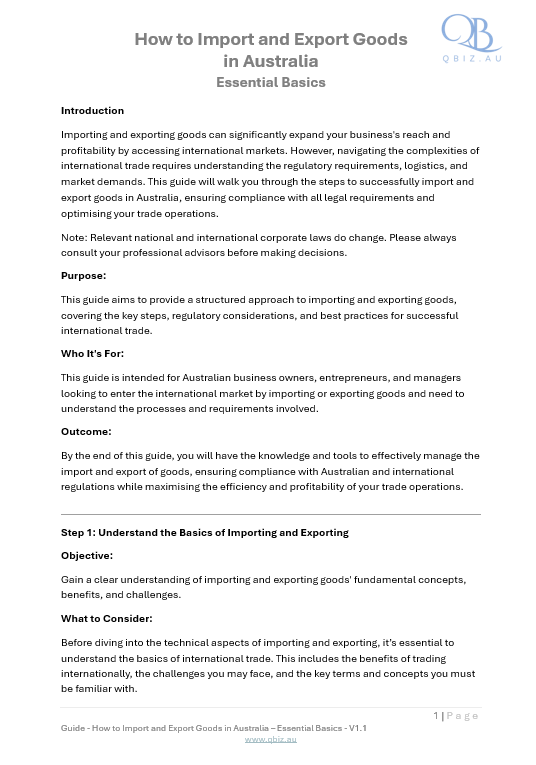Qbiz.AU
How to Import and Export Goods in Australia
How to Import and Export Goods in Australia
Couldn't load pickup availability
Product Description: The "How to Import and Export Goods in Australia" guide is essential for business owners and entrepreneurs looking to expand their operations into international markets. This guide provides a detailed overview of the steps involved in importing and exporting goods, from understanding the basics of global trade to complying with Australian and international regulations.
Note: Relevant national and international corporate laws do change. Please always consult your professional advisors before making decisions.
Word count: 4,303
PDF pages: 22
Audio minutes: 36.29
Key Features & Benefits:
- Comprehensive Guidance: Covers every aspect of the import/export process, including market research, regulatory compliance, logistics management, and payment strategies.
- Practical Tools: Includes templates, checklists, and resources to streamline your import/export operations and ensure compliance with all legal requirements.
- Expert Insights: Offers tips and best practices for building strong trade relationships and managing the complexities of international trade.
What's Inside: This downloadable multipage PDF guide covers seven crucial steps: understanding the basics of importing and exporting, researching and selecting your market, complying with Australian import/export regulations, arranging shipping and logistics, managing payments and currency risks, ensuring compliance with international trade laws, and building strong trade relationships. It also includes links to valuable tools and further reading to support your trade operations. Additional resources may not always be available in the "Essential Basics" version.
FAQ Section:
- Q: Do I need a special license to import or export goods in Australia?
- A: It depends on the type of goods. Some goods require specific licenses or permits. Check with the Australian Border Force (ABF) for details.
- Q: How can I reduce the risks associated with currency fluctuations?
- A: Use hedging strategies, such as forward contracts or options, and consider invoicing in your preferred currency to manage exchange rate risks.
- Q: What are Incoterms, and why are they important?
- A: Incoterms define the responsibilities of buyers and sellers in international trade, helping to avoid misunderstandings and ensuring clear agreements.
Download this version Now! To streamline your import/export operations and confidently expand your business into international markets. This guide provides everything you need to succeed in global trade.
Share with a colleague




